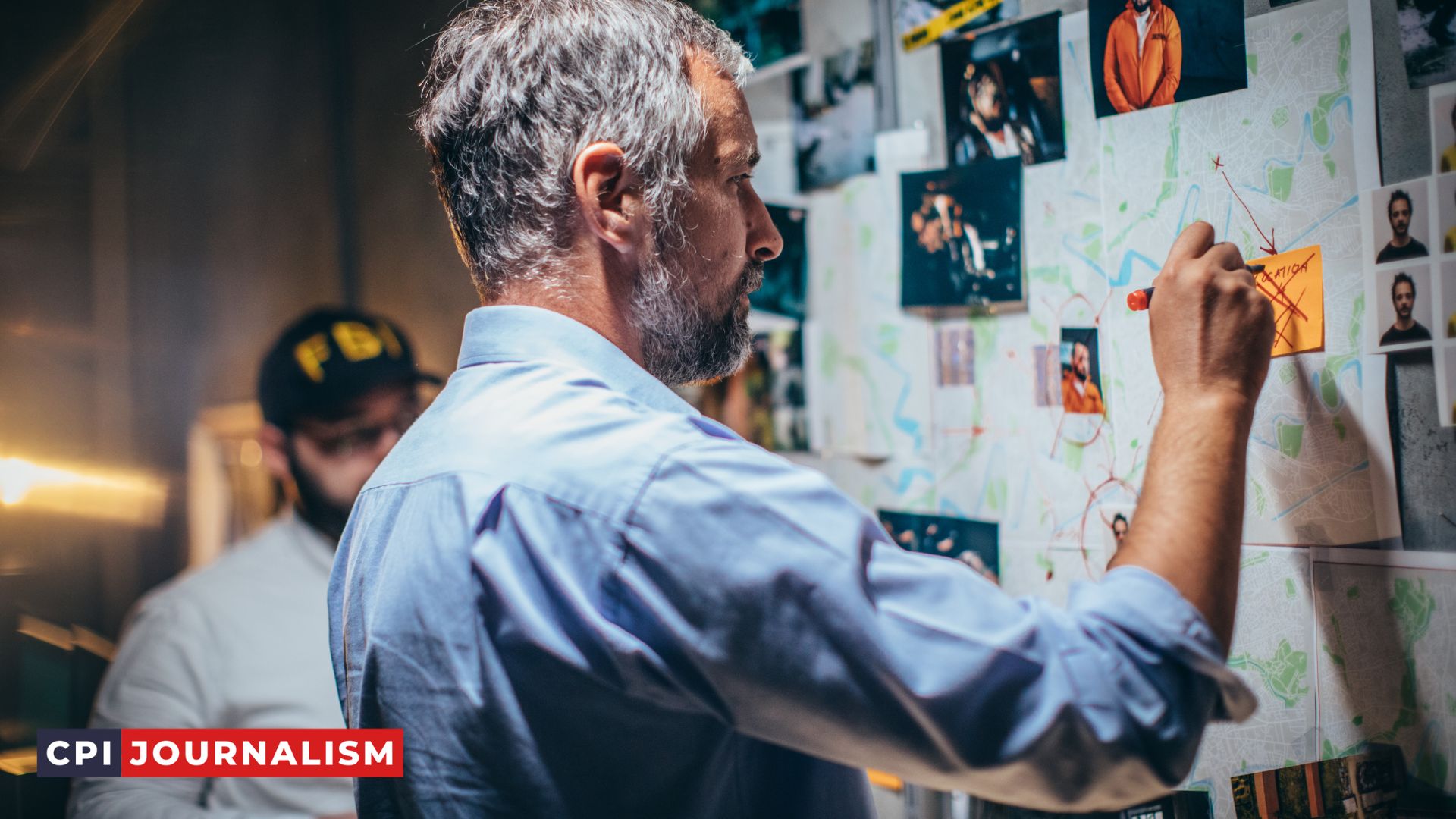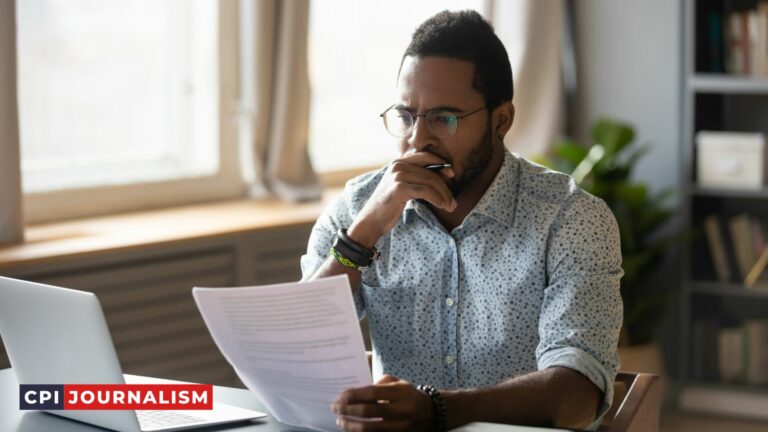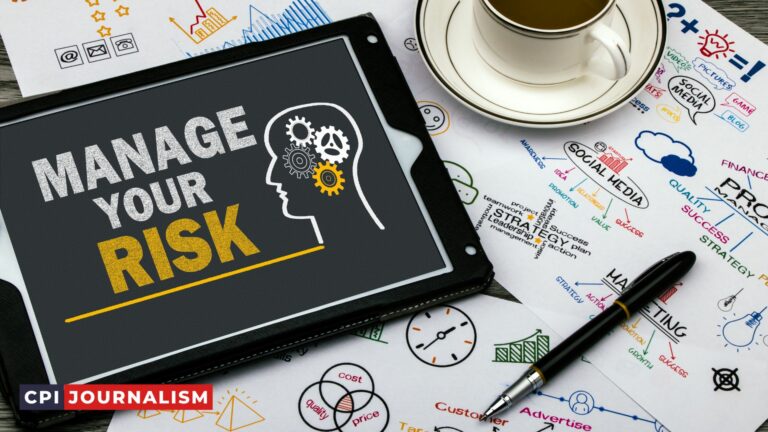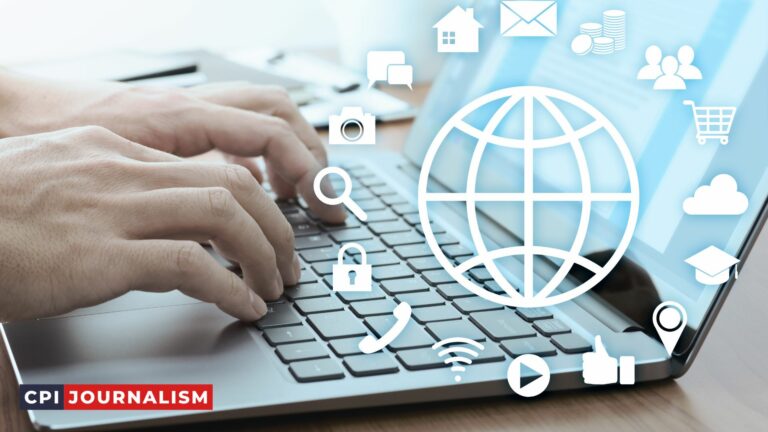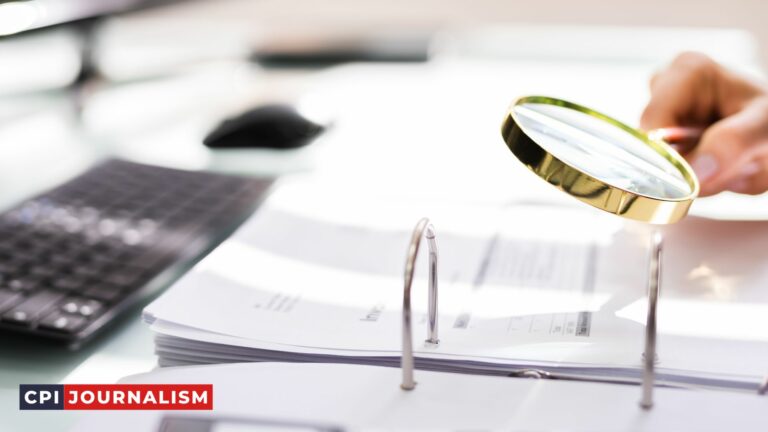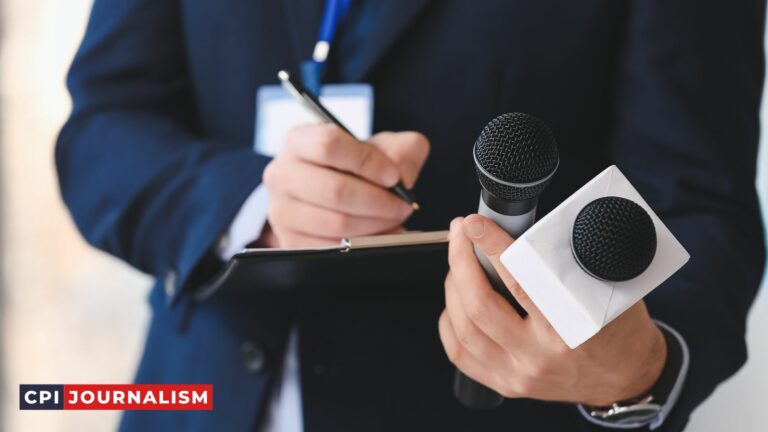What Are The Strategies For Maintaining Objectivity And Independence In Investigating Journalism?
As an experienced journalist, I know firsthand the importance of maintaining objectivity and independence when conducting an investigation.
In order to be successful, it is imperative to not only remain impartial, but also to conduct investigative journalism responsibly.
This article will explore the various strategies journalists should consider when it comes to maintaining objectivity and independence in their investigative work.
I will discuss topics such as the importance of researching thoroughly and judging sources objectively, as well as the need to remain unbiased in the face of conflicting information and opinion.
Furthermore, I will discuss the importance of maintaining a clear and ethical code of conduct and the need to be able to identify potential conflicts of interest.
By following the strategies outlined in this article, journalists will be able to ensure that their investigative work is as reliable and impartial as possible.
A. Overview of Objectivity and Independence
Objectivity and independence are two critical elements of investigative journalism. Objectivity is the practice of reporting facts without bias or personal opinion, while independence is the ability to investigate and report without interference from outside sources.
It is essential for journalists to maintain both objectivity and independence in order to ensure the accuracy and reliability of their work.
Objectivity is maintained by focusing on facts, rather than personal opinion or speculation. Journalists should strive to gather facts from a variety of reliable sources, and to report those facts accurately and without bias. To ensure accuracy, journalists should also take steps to verify the facts they present.
Independence is essential for investigative journalists, as it allows them to pursue stories without interference from outside sources.
Journalists must be aware of potential conflicts of interest, and must be willing to challenge those who are attempting to influence their reporting.
Additionally, journalists should maintain transparency with their sources, and should strive to protect their sources’ identities.
Overall, objectivity and independence are essential for producing reliable investigative journalism. By focusing on facts and maintaining independence, journalists can ensure that their work is accurate and unbiased.
II. Strategies for Maintaining Objectivity and Independence
Objectivity and independence are essential for an investigative journalist to ensure their credibility and accuracy in their reporting. However, maintaining objectivity and independence can be a challenge.
Here are some strategies for maintaining objectivity and independence in investigating journalism:
1. Research thoroughly: As an investigative journalist, it is important to research the topic as thoroughly as possible. This means looking at multiple sources and gaining an understanding of all sides of the story. It is also important to double check facts and verify sources.
2. Remain unbiased: It is important to remain unbiased in your reporting. This means avoiding personal opinions and focusing on the facts. It also means avoiding assumptions and being open to all possibilities.
3. Ask the right questions: Asking the right questions is essential for an investigative journalist. This means asking questions that can be answered with facts and avoiding questions that can lead to speculation or bias.
4. Maintain impartiality: It is important to maintain impartiality throughout the process. This means not taking sides and avoiding any conflicts of interest.
5. Use multiple sources: It is important to use multiple sources for an investigative report. This means looking for sources from different backgrounds and points of view.
By following these strategies, an investigative journalist can ensure objectivity and independence. This will result in more accurate and credible reporting.
A. Establishing Clear Boundaries
As a journalist, one of the most important strategies for maintaining objectivity and independence in investigating journalism is to establish clear boundaries.
This means that journalists must set limits on their activities and interactions with the subject of their investigation. It is essential to avoid any potential conflicts of interest, both real and perceived.
For example, when interviewing a source, it is important to maintain a professional distance. Journalists should not give the impression that they are engaged in any kind of personal relationship with the source, or that they are providing any special favors.
Similarly, journalists should not accept any payment or gifts that could be seen as an attempt to influence the outcome of an investigation.
Additionally, journalists should be careful to avoid any potential bias in their reporting. This includes avoiding assumptions or stereotypes, and focusing on facts and evidence. Journalists should also make sure to provide both sides of a story, avoiding any kind of editorializing.
Establishing clear boundaries can help ensure that journalists remain impartial and objective in their investigations, and that the public can trust the accuracy and integrity of their reporting.
1. Avoiding Conflicts Of Interest
One of the most important strategies for maintaining objectivity and independence in investigating journalism is to ensure that there are no conflicts of interest that could influence the outcome of the investigation.
A conflict of interest arises when a journalist has a financial or personal interest in the subject matter of their investigation, which could lead to bias or undue influence in the reporting.
To avoid conflicts of interest, journalists should make sure that they have no personal or financial stake in the story.
This includes avoiding any relationships or connections with people or organizations involved in the investigation, and not accepting any gifts or favours from them.
Journalists should also be aware of potential sources of income that could be seen as a conflict of interest, such as consulting fees or payments for media appearances.
Before beginning an investigation, journalists should also take the time to research the background of their subject matter, to ensure that they are aware of any potential conflicts of interest.
This could include researching any financial links between the subject and any of the people or organizations involved in the investigation.
Finally, journalists should make sure to disclose any potential conflicts of interest before they begin their investigation. This will ensure that the public is aware of any potential bias or influence, and can make an informed decision about the reporting.
2. Maintaining Professional Distance
Maintaining professional distance is essential for any journalist who wants to remain objective and independent in their investigations.
In order to ensure that bias does not creep into your reporting, it is important to maintain a healthy distance between yourself and those involved in the story.
First, it is important to remember that, no matter how friendly you may become with someone, you are still a journalist and will, at the end of the day, be reporting on what you learn.
Therefore, it is important to keep a professional attitude and demeanor when interacting with people. Do not let emotions or personal relationships influence your reporting.
Second, while it is important to maintain a distance, it is also important to establish a rapport with people involved in the story. People are more likely to be open and honest with you if you have a good relationship with them.
However, it is important to keep in mind that, even if you become close with someone, you still need to maintain a certain level of professionalism and objectivity.
Finally, it is important to keep in mind what information you are sharing and with whom. The more you share, the more likely it is that your objectivity and independence will be compromised.
It is important to remember that the information you collect is confidential and should not be shared with anyone outside of your journalistic team.
By following these simple steps, journalists can ensure that they remain objective and independent in their investigations. Maintaining professional distance is an essential component of investigative journalism and should not be taken lightly.
3. Establishing a Code of Ethics
Objectivity and independence in investigating journalism is best achieved by establishing and following a code of ethics. In the field of journalism, ethical codes are a set of guidelines that can help journalists maintain their integrity and ethical standards.
Such a code of ethics should be established and enforced by the media organization to ensure that all journalists abide by it.
First and foremost, a code of ethics should promote truth and accuracy in reporting. Journalists should be committed to only reporting facts and should strive to be as accurate and unbiased as possible.
A code of ethics should also ensure that journalists respect the rights of those they report on, including the right to privacy.
Additionally, a code of ethics should emphasize the importance of independence and objectivity. Journalists should strive to remain independent and objective in their reporting, even when the subject matter is controversial or politically charged.
They should also avoid any conflicts of interest, such as taking money or gifts from those they are reporting on or having a personal or professional relationship with them.
Finally, a code of ethics should also encourage journalists to be transparent and accountable in their reporting.
They should make all of their sources public and provide evidence to support their claims. This helps to ensure that their reporting is honest, accurate, and above reproach.
By establishing and following a code of ethics, journalists can ensure that they remain independent and objective in their reporting.
This will help to maintain the integrity and trustworthiness of the media organization, and ensure that their reporting is accurate and unbiased.
B. Developing A Systematic Approach
As an experienced journalist, one of the most important strategies for maintaining objectivity and independence in investigative journalism is to develop a systematic approach. This means having a well-defined plan for the investigation, from start to finish.
This plan should include defining the goal of the investigation, identifying the sources of information, conducting interviews, and determining the best way to analyze and present the results.
When it comes to data analysis, it is important to use a methodical approach that involves analyzing the data from multiple angles and using various tools and techniques. This helps to ensure that the analysis is thorough, objective, and accurate.
It is also important to consider the ethical implications of the data analysis, such as protecting the privacy of sources.
Once the data has been collected and analyzed, it is equally important to determine how best to present the results. This can involve providing a narrative summary of the findings, visualizing the data with charts and graphs, or creating detailed reports.
Again, it is important to consider the ethical implications of how the results will be presented.
Overall, by developing a systematic approach to the investigation and data analysis, it is possible to ensure that the investigation is conducted in an objective and independent manner. This helps to ensure that the results of the investigation are accurate and trustworthy.
1. Researching and Verifying Sources
The first step to maintaining objectivity and independence in investigating journalism is to research and verify sources.
As journalists, it is our responsibility to ensure that the information we are using is credible, accurate, and reliable.
Doing this includes verifying the sources of information, as well as conducting additional research to verify the accuracy of what is being reported.
One way to verify sources is to call up the person or organization that is being cited as a source and ask them questions. This will help to confirm the accuracy of their statements.

It is also important to be aware of any potential biases that the source may have, as these can influence the accuracy of the information being reported.
Additionally, it is important to consider the context in which the information is being presented. Is the source providing reliable information in a balanced and unbiased way?
When researching a topic, it is important to use multiple sources in order to gain a comprehensive understanding of the issue. This can include primary sources such as interviews and secondary sources such as academic articles.
It is also important to consider a variety of perspectives in order to gain a balanced understanding of the issue.
In conclusion, researching and verifying sources is essential for maintaining objectivity and independence in investigating journalism.
By verifying sources and considering multiple perspectives, journalists can ensure that the information they are reporting is accurate and unbiased.
2. Documenting Evidence
As a journalist, it is important to maintain objectivity and independence in your investigations. One of the most important strategies for doing so is to document evidence. This can help to ensure that you are presenting accurate and unbiased information.
Documenting evidence involves gathering and preserving any relevant documents, records, or other materials that may be used to support your findings.
This can include interview notes, photographs, audio and video recordings, emails, and any other records that may be pertinent to your investigation. It is important to keep these documents organized and accessible so that they can be used to back up your claims.
In addition to collecting physical documents, it can also be beneficial to document interviews and other conversations that you have with sources.
This can be done by taking detailed notes or by recording the conversation. If you decide to record the conversation, be sure to get the consent of all parties involved.
By documenting evidence, you can ensure that your reporting is accurate and unbiased. In addition, it can provide a helpful reference if your findings are challenged or you need to revisit the issue in the future. Therefore, it is important for journalists to document evidence as part of their investigations.
3. Cross-Checking Information
Cross-checking information is an important strategy for maintaining objectivity and independence in investigative journalism.
Cross-checking involves confirming information with multiple sources and verifying facts to ensure accuracy. This is a crucial step in any investigation, particularly when dealing with sensitive topics.
When cross-checking information, it is important to be aware of potential biases that may affect the accuracy of the information. Consider the sources of the information and ask questions to identify potential conflicts of interest.
For example, if a source has a vested interest in the outcome of the investigation, the information they provide may be biased.
It is also important to consider the context of the information. What is the source’s reputation? Are they known for accuracy and honesty? Does the source have any credibility? When cross-checking information, it is important to be aware of sources that may be unreliable or biased.
In addition, it is important to note whether the information is corroborated by other sources. If the same facts are reported by multiple sources, the information is more likely to be accurate. However, if only one source is reporting the information, it is important to question the accuracy of the source.
Finally, it is important to consider the timeframe of the information. Has the information been reported in the past? If so, is it still accurate? It is important to be aware of changes in the facts in order to ensure accuracy.
Overall, cross-checking information is an important step in maintaining objectivity and independence in investigative journalism.
By considering potential biases, corroborating facts with multiple sources, and considering the context of the information, journalists can ensure accuracy and objectivity in their reporting.
4. Utilizing Multiple Perspectives
One of the most important strategies for maintaining objectivity and independence in investigating journalism is utilizing multiple perspectives.
This means taking the time to interview multiple people involved in a particular story and gaining a more comprehensive picture of the event.
It is important to ensure that everyone involved has an opportunity to give their perspective, and to ensure that any potential bias or influences are identified and accounted for.
When interviewing multiple people, it is important to ask open-ended questions that allow each individual to share their own unique perspectives and experiences.
Additionally, it is important to use active listening techniques and to avoid imposing one’s own biases or assumptions on the conversation.
Also, it is important to ensure that all voices are heard, regardless of the individual’s background or the power dynamics of the situation.
This means taking extra steps to ensure that individuals from marginalized groups and those in positions of power are both given the opportunity to express their perspectives.
This can be accomplished through actively seeking out individuals from diverse backgrounds and using proactive outreach techniques.
By utilizing multiple perspectives in an investigative journalism piece, a journalist can ensure that they have a comprehensive picture of the story and that all voices are heard. This can help to create a more balanced and objective end result.
C. Utilizing Technology
Technology can be a great tool for journalists to maintain objectivity and independence in their investigations. It is important that journalists are aware of the various technological resources available to them and how to use them properly.
First and foremost, journalists should use technology to protect their sources from being identified. The use of encrypted messaging services such as Signal, Telegram, and Whatsapp can help ensure that confidential sources are not revealed.
It is also important to keep in mind that any information shared via these services can still be accessed by law enforcement, so it is important to use secure methods of communication when possible.

Technology can also be used to help journalists quickly and accurately verify information. By utilizing online databases, search engines, and other online resources, journalists can quickly and easily access a wealth of information that can be used to verify the accuracy of their reporting.
Additionally, journalists can utilize social media to track down sources and obtain additional information.
Finally, technology can be used to store and organize information safely and securely. By utilizing secure cloud storage solutions, journalists can store their research and investigations in an organized and encrypted manner.
This will help ensure that their work is protected from unauthorized access and that the information remains secure.
In conclusion, utilizing technology can be an invaluable tool for journalists to help them maintain their objectivity and independence in their investigations.
By using secure communication tools, verifying information quickly and accurately, and storing information securely, journalists can ensure that their work remains secure and unbiased.
1. Utilizing Fact-Checking Software
As an experienced journalist, one of the most important strategies for maintaining objectivity and independence in investigating journalism is to utilize fact-checking software.
Fact-checking software is an invaluable tool for verifying facts and cross-referencing sources to ensure accuracy in reporting.
In addition to providing a more thorough and reliable fact-checking process, it can also help to ensure that the journalist does not become biased or inadvertently swayed by a particular source.
When researching a story, it is important to utilize fact-checking software to verify any information that is obtained.
This will help to ensure that the journalist is not inadvertently swayed by a particular source or piece of information, and that the facts are accurate and unbiased.
Fact-checking software can also be used to cross-reference sources to ensure that the journalist is not relying on a single source of information.
This is especially important in cases where the story involves complex or sensitive topics, as it is important to have multiple sources to corroborate any facts or claims.
Finally, fact-checking software can also be used to perform a thorough review of any information that has been obtained from sources such as social media or other online sources.
This will help to ensure that the information is unbiased and accurate, and that the journalist is not being swayed by any particular source of information.
Overall, fact-checking software is an invaluable tool for verifying facts and cross-referencing sources to ensure accuracy in reporting.
Utilizing this software can help to ensure that the journalist is not becoming biased or inadvertently swayed by a particular source, and that the facts are accurate and unbiased.
2. Utilizing Data Analysis Tools
Data analysis tools can provide invaluable assistance in gathering evidence for investigative journalism.
It is important for journalists to use data analysis tools in a way that does not compromise their objectivity or independence.
One data analysis tool that has proven useful in investigative journalism is data visualization. By visualizing data, journalists can identify patterns and trends that would otherwise be hard to spot. This can help journalists to identify stories and uncover evidence.
Additionally, data visualization tools can also be used to create compelling visualizations that can help to communicate stories to wider audiences.
Another useful tool for investigative journalism is data mining. Data mining techniques can be used to identify relevant data from large datasets.
This can help journalists to identify evidence that may not have been apparent without the use of data mining.
Additionally, data mining can also be used to identify relationships between different data points, which can be useful in uncovering stories.
Finally, journalists should also consider using machine learning techniques to aid in their investigative journalism. Machine learning algorithms can be used to identify patterns in data that would otherwise be difficult to detect.
This can help journalists uncover stories that would otherwise be difficult to find. Additionally, machine learning can also be used to identify potential sources and contacts that may be relevant to an investigation.
By utilizing data analysis tools in a responsible and ethical way, journalists can ensure that their objectivity and independence remain intact. This can help journalists to uncover stories and uncover evidence that would otherwise be difficult to access.
3. Utilizing Social Media Monitoring Tools
Social media monitoring tools are a great way for journalists to remain objective and independent in their investigations. These tools can help journalists analyze large amounts of data and uncover trends and patterns to inform their reporting.
A few key advantages of using social media monitoring tools are accuracy, speed, and efficiency. By using these tools, journalists can quickly and accurately collect and analyze data, allowing them to stay ahead of the competition and uncover important stories faster.
Furthermore, these tools have advanced algorithms and filters that can help journalists hone in on specific keywords or topics, allowing them to more easily narrow down their searches and focus on the facts.
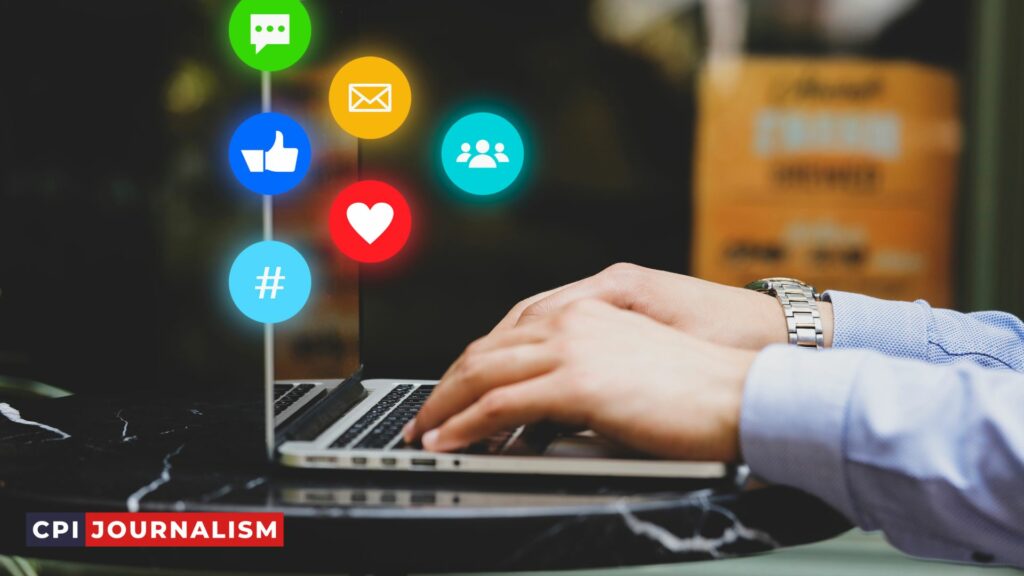
In addition, these tools can help journalists remain independent in their investigations. With social media monitoring tools, journalists can easily detect any bias or manipulation of facts, helping them to remain unbiased and impartial in their reporting.
Finally, social media monitoring tools can help journalists keep track of the conversation around their stories, helping them to stay ahead of any potential criticism or backlash.
By monitoring the conversation around their work, journalists can respond quickly and make sure that their stories are getting the attention they deserve.
Overall, social media monitoring tools can help journalists remain objective and independent in their investigations, allowing them to uncover important stories faster and more accurately.
III. Conclusion
The strategies for maintaining objectivity and independence in investigative journalism are essential for a journalist to produce credible and reliable information.
The most important strategies are to remain independent, maintain ethical standards, verify sources, and document information.
As an experienced journalist, I have found that following these strategies has enabled me to produce accurate and balanced reports.
Moreover, staying informed of the latest developments in the field and seeking out additional perspectives are also important aspects of maintaining objectivity and independence in investigative journalism.
By embracing a variety of opinions, journalists can ensure that their work is unbiased and accurate.
In conclusion, it is critical for journalists to be aware of the strategies for maintaining objectivity and independence in investigative journalism. By following these strategies, journalists can ensure that their work meets the highest standards of accuracy and reliability.
A. Summary of Strategies for Maintaining Objectivity and Independence
Investigative journalism requires a great degree of objectivity and independence. To ensure that the reporting is accurate and unbiased, journalists must employ strategies that ensure these qualities remain intact.
Here is a summary of the strategies to ensure objectivity and independence:
1. Remain aware of any potential biases and seek to remain impartial. This includes researching the topic objectively, obtaining multiple sources, and questioning the facts to ensure accuracy.
2. Avoid any conflicts of interest. Journalists should be transparent about any relationships that could influence their reporting and take steps to avoid any such relationships.
3. Maintain a healthy distance from those involved in the story. This includes refraining from any personal relationships that could lead to bias.
4. Seek out multiple sources and corroborate facts. Journalists should strive to obtain as many reliable sources of information as possible and verify the facts with multiple sources.
5. Give all sides of the story a fair chance. Journalists should strive to give all sides of the story an equal chance to be heard and ensure that no one is being unfairly represented.
By following these strategies, investigative journalists can ensure that their reporting is objective and unbiased.
B. Benefits of Maintaining Objectivity and Independence
Maintaining objectivity and independence in investigating journalism carries a range of benefits. Firstly, it provides journalists and their readers with a higher degree of trustworthiness and reliability.
When journalists maintain objectivity and independence, they are able to provide their readers with accurate, unbiased information and ensure that their readers can trust the sources they are using to inform their opinion.
Additionally, maintaining objectivity and independence in reporting allows journalists to remain unbiased and to report the facts without being influenced by any particular agenda or opinion.
This allows journalists to provide readers with a more balanced perspective and to present all sides of an issue, allowing readers to make an informed decision about their opinion.
Moreover, objectivity and independence in investigating journalism provides journalists with greater credibility, as they are seen as reliable sources of information.
This, in turn, helps journalists build a positive reputation in the industry and can help them establish a successful career in journalism.
Finally, maintaining objectivity and independence in reporting also helps journalists protect their own interests. By remaining unbiased and independent, journalists can avoid being accused of bias or taking sides in a story, which could potentially damage their reputation or even lead to legal issues.
C. Final Thoughts
As an experienced journalist, I have come to understand the importance of maintaining objectivity and independence in investigative journalism. I believe that the strategies outlined in this article are essential for journalists to be successful in their work.
Reporting with integrity and accuracy is essential for any journalist and can only be achieved if one is willing to take the necessary steps to maintain objectivity and independence.
It is essential for journalists to remember to be impartial and unbiased when conducting their investigations. They must also be mindful of their own biases and strive to remain aware of their own potential conflicts of interest.
Journalists should always be aware of any potential conflicts of interest and take steps to ensure that their reporting remains independent and unbiased.
Additionally, it is important for journalists to strive for accuracy when conducting their investigations and to double-check their facts and sources to ensure that their information is reliable.
Ultimately, investigative journalism is a vital tool for uncovering the truth and holding those in power accountable.
It is only through a commitment to objectivity and independence that journalists can effectively report on these issues without allowing personal biases to affect their work.

